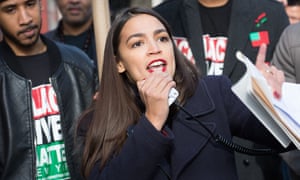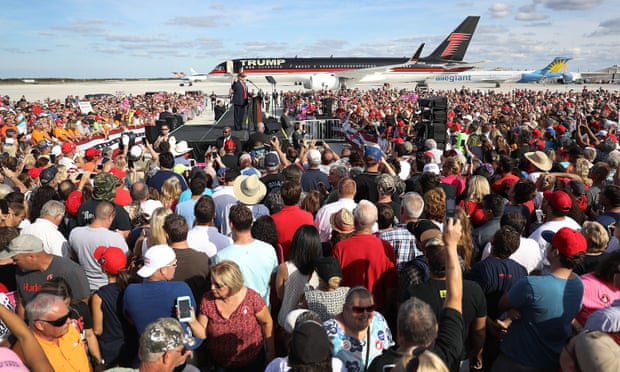We have been discussing the American Parliament system as, meaningfully, a two-party system. But I have been interested in some of current new movements and trends, as well. So this is just for my brief study notes.
What is DSA(Democratic Socialists of America) , a NGO which seeks more human orientated democracy? http://www.dsausa.org/
Who We Are & What We Do
The Democratic Socialists of America (DSA) is the largest socialist organization in the United States. We believe that working people should run both the economy and society democratically to meet human needs, not to make profits for a few. We are a political and activist organization, not a party; through campus and community-based chapters, DSA members use a variety of tactics, from legislative to direct action, to fight for reforms that empower working people.
Current Campaigns
DSA and YDSA chapters organize around a variety of issues based on local priorities, especially labor solidarity and anti-austerity work. However, the national office provides resources and support for the main activist priorities of the organization as voted on by delegates to our national convention:
Medicare for All Click here
Strong Unions Click here
Electoral Power
Bernie Sanders launched a political revolution and we’re continue to build it, supporting democratic socialist candidates running for local and state office. We’re also grappling with how to build independent political power to hold candidates we elect, and others, accountable to their constituents rather than the donor class. Click here to go to our electoral website.
OP-ED: Restoring respectful discussion: A practical guide
SEPTEMBER 22, 2018
A recent article called for “wholehearted praxis” in how we interact with our comrades, and argued against “internal policing.” I think the intent was good, but the article did not offer a concrete analysis of what goes wrong in personal interactions where there are legitimate political disagreements, and only gave vague advice about what…
Climate Change Needs a Short-Term Plan and a Global One
SEPTEMBER 19, 2018
The democratic left generally agrees that using renewable energy is necessary to defeat climate change and is becoming more focused on moving our nation to a renewable future. Yet we also know that climate change is a global problem. The International Energy Agency’s (IEA) latest forecast gives us a hint of what we need to do globally.
Part Two, American Socialism Then and Now
SEPTEMBER 15, 2018
Those of us who declare ourselves socialists must reaffirm our radicalism, envision a truly revolutionary anti-capitalist future, and understand that today, as in Gilded Age America, the our cause is increasingly that of a radical democracy struggling to be born.
Socialism is no longer a dirty word in the US – and that’s scary for some
 Alexandria Ocasio-Cortez at a rally in New York
Alexandria Ocasio-Cortez at a rally in New York
Here’s a fun game to play with a right-leaning American: say the word “socialism” and count the number of seconds it takes for them to scream “VENEZUELA” in response. It is unclear how many conservative Americans could identify Venezuela on a map but, boy, they all seem keen to inform you that the beleaguered country is a shining example of why socialism will never work, certainly not in the US.
For a recent example of how Republicans go completely Caracas at the mere mention of the S-word, please see Meghan McCain, the daughter of the 2008 presidential candidate John McCain. Last week, Meghan McCain had a meltdown on the daytime television chatshow The View when the subject of Alexandria Ocasio-Cortez, the 28-year-old Democratic Socialist who recently unseated a 10-term New York congressman, came up.
Why the Democratic Socialists of America are experiencing a boom
Bernie Sanders revived a political current that seemed dead in the US. But working-class Americans’ isolation from mainstream politics helped, too
For the Democratic Socialists of America, there has been a silver lining in this dark year dominated by Trump. Thanks to a post-election membership boom, the organization is now 25,000 people strong. The DSA has become the largest socialist organization since the heyday of Eugene Debs and the Socialist Party of America at the turn of the 20th century.
Most of the new members of the organization have been young people, whose affinity for socialist ideas – or at the very least for a rejection of capitalism – has been growing in recent years as the punishing blows of neoliberalism have placed them in a more precarious place than ever before.
This newfound energy was on display at their biennial convention last weekend in Chicago, where more than 1,000 attendees from dozens of chapters around the country gathered to debate resolutions, set priorities for the next two years, and elect people to serve on the National Political Committee.
So why has the DSA’s membership increased threefold since Donald Trump won? The first reason is the most obvious one: the Bernie Sanders effect.
While polls had shown a growing dissatisfaction with capitalism in the wake of the Great Recession, there had not been a national figure that was able to coalesce that disquiet into an alternative vision for society, politics, and economy.
It was thought that Barack Obama might be this person at one point, but disillusionment set in once it became clear that Obama was not keen on using his mandate for the kind of truly transformational change that had been promised throughout his 2008 campaign for president.
Sanders’s entry into the race in April 2015 was, at first, treated as an afterthought. Not completely surprising, of course, given that Hillary Clinton had been, essentially, running for president for nine years. But with shock results in Iowa and New Hampshire, the Bern-feeling was off to the races.
Sanders, previously a little-known “democratic socialist” independent senator from Vermont, was able to win more than 13 million votes and 43% of the Democratic primary electorate. But his biggest impact came in what he did for socialism in the United States.
Bernie Sanders managed to revive a political current that seemed all but dead in American politics. After decades of continual red-bashing from rightwing forces in media and politics, the notion that the people, not corporations, should own more of the wealth in this country suddenly became something worth discussing.
This feeling only accelerated after Trump’s elevation to the White House in January. While many Democrats saw the mass protests against Trump’s election as an aberration, leftists saw an opportunity to engage in building the base for socialist ideas around the country.
The DSA is the largest manifestation of this, but by no means is it alone: local organizations such as the Philly Socialists, the Mobile Bay Socialist Collective in Alabama, and the armed resistance group Redneck Revolt work alongside the DSA’s estimated 105 (and growing) chapters on projects ranging from tenants’ rights, reproductive justice, and labor rights, to justice for the victims of police brutality.
|
Oct 25, 2016 … Sixty-one per cent of survey respondents say neither political party reflects their … About two in three Republicans believe voter fraud is a bigger … of Americans who see a very non-responsive political system to their situation.
|
Britain’s two-party political system isn’t working
The debates prompted by the Panama Papers, while usefully illuminating the extraordinary corruption of many foreign leaders, may have distracted us from the real problem in Britain. Unlike in Russia or China, the corruption in British politics does not stem from those in power abusing their position for personal enrichment. Instead, it comes from the structure of our decaying political system. Propped up by money from vested interests, the rigid two-party straitjacket has left the UK with a malfunctioning democracy and led to widespread public disillusionment.
It doesn’t have to be this way. It’s clear that people are looking for a new kind of politics that goes beyond traditional party lines: a politics first and foremost of engagement and transparency, not reducible to the old left-right divide.
Young and liberal in America: ‘It’s both hopeful and disturbing’
As part of the Ask America project, the BBC spoke to young activists at a political convention for progressives in New Orleans.
If you have story ideas or questions about the US you want us to explore please let us know. You can email askamerica@bbc.co.uk or use #BBCAskAmerica.
Video by Hannah Long-Higgins
-
07 Aug 2018
How socialism became the talk of the midterms
By KIM ADAMS • SEP 11, 2018
Socialism is getting more attention in American political races, with high-profile candidates embracing so-called socialist policies and groups like the Democratic Socialists of Americaswelling their membership ranks and openly backing congressional candidates like New York’s Alexandria Ocasio-Cortez.
“I believe in health care for all, I believe in education for all, I believe in housing as a human right” said Ocasio-Cortez in an interview with DeRay McKesson on “Pod Save the People.” If people are going to call me a socialist for believing in those things, all right, call me a socialist, I don’t give a damn.”
Ocasio-Cortez’s position is “quite a distance away from what socialism traditionally has meant,” said Frank Newport, editor-in-chief at Gallup. He points to Gallup polling during the Cold War, when the company found Americans defined socialism as “the things that we would have thought of 50 years ago, government ownership of the means of production and equal incomes.”
At the time, communism was spreading across Eastern Europe, Western European governments were experimenting with socialism and U.S. government news reels were warning Americans to be on guard.
“The theory of socialism may be exciting to the intellect of many people,” said one 1955 film. “Its glittering promises may seduce the judgment of millions.”
But the film warned that socialism was a first step on the slippery slope to communism.
That connection between socialism and communism has faded for some, said linguist Deborah Tannen at Georgetown University. She’s written several books on how words and their use can change over time.
“I think young people are just so distant from [the Cold War] that those negative associations would no longer be taboo,” she said.
Today, Gallup polling shows more than half of young people (18-29) have a positive view of socialism. Perhaps because rather than linking it to communism, they tend to associate it with a more accepted partner — democracy.
“Democratic socialism means that in a democratic civilized society, the wealthiest people and the largest corporations must pay their fair share of taxes,” said Democratic presidential candidate and longtime Vermont Sen. Bernie Sanders in 2015.
“Most older people thought this is the kiss of death,” said Georgetown’s Tannen. “If he says he’s a socialist, he’s dead in the water.”
In fact, Sanders made it all the way to the Democratic convention, and now congressional candidates are weaving the ideas of democratic socialism into successful campaign platforms for the midterms.
That said, Americans attitudes toward socialism haven’t changed much in recent years, according to Gallup’s polling. More than half of Democrats view socialism positively and have for years. Less than a quarter of Republicans feel the same. What’s really changed is the way people feel about capitalism.
From the financial crisis to the Occupy Wall Street movement to the reaction to recent corporate tax cuts, capitalism has become, in some circles, the new villain. The percentage of Democrats who have a positive view of it has dropped 10 points in the last two years.
“I think for a lot of people, the way that they use ‘socialism’ is maybe just to mean not capitalism,” said Benjamin McKean, a political theorist at Ohio State University.
“If you’re a young person coming out of college, you’re seeing some people doing incredibly well,” he said. But, “you’re seeing most people, in an economy that’s supposed to be doing great, not doing any better than they were a few years ago, sometimes even doing worse.”
Which may be part of the reason behind a 12-point drop in approval of capitalism among young people, in particular.
But overall, 56 percent of Americans still view capitalism positively, compared to just 37 percent for socialism. So the current economic system isn’t likely going anywhere just yet.


 Sun 29 Jul 2018
Sun 29 Jul 2018 Alexandria Ocasio-Cortez at a rally in New York
Alexandria Ocasio-Cortez at a rally in New York Sat 12 Aug
Sat 12 Aug 